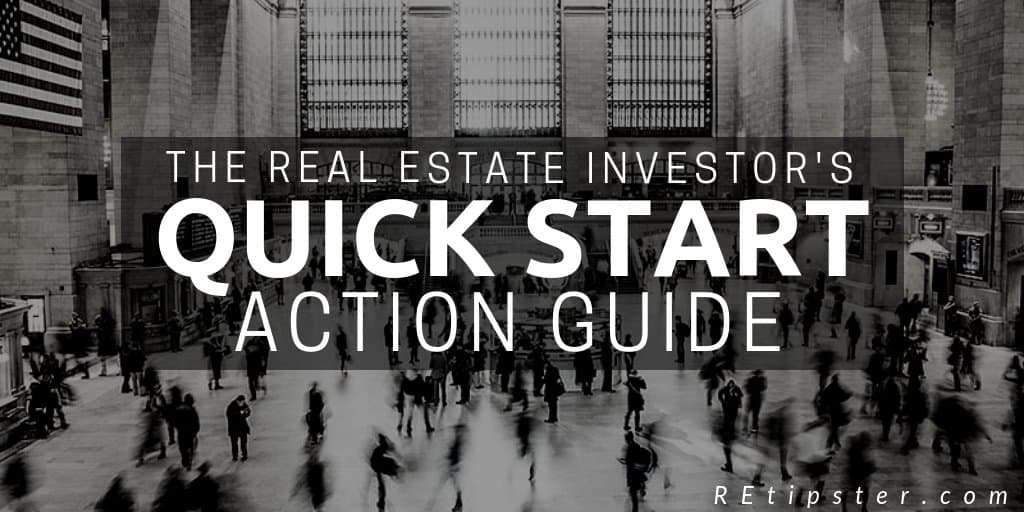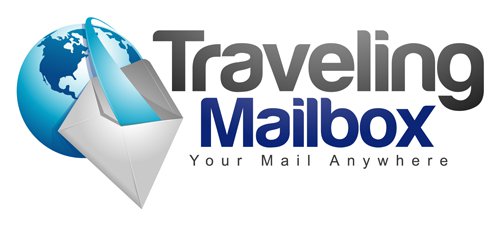
REtipster features products and services we find useful. If you buy something through the links below, we may receive a referral fee, which helps support our work. Learn more.
The journey of a thousand miles begins with one step. ~ Lao Tzu
When you consider everything involved with starting a new business, it's easy to feel overwhelmed.
There are A LOT of moving pieces to keep track of, and when you come to terms with how complex the process is, it's no wonder that most people give up before they ever turn a profit.
Starting a real estate investing business is no different.
I still vividly remember my first year. I encountered many questions, obstacles, and head-scratching moments that left me feeling lost and confused.
The first 12 months of any business are crucial for an entrepreneur. Many important things happen during this window of time – ultimately determining the fate of the new enterprise and whether it will blossom into a smashing success story or die a quick death before it ever gets off the ground.
I want to increase your chances of success. Rather than spending your first several months perplexed about what you should be doing, this “quick start” action guide will help you connect the dots and set up your real estate business infrastructure right from the beginning.
By getting yourself properly established from the outset, you'll be locked, loaded, and ready to make your first deal.
1. Understand Your “Why”
Let's be honest. Why are you in this business? What's your real motivation?
- To retire early?
- To inject huge amounts of cash into your bank account?
- To pay for your kid's college?
- To build streams of passive income?
- To generate extra spending cash?
- To get your time back?
- To spend more time with your friends and family?
- To finance your favorite hobby?
- To fund your dream vacation?
- To give to charity or support your favorite non-profit?
There is no wrong answer, but however you answer, you need to be very clear about it so you're fully aware of why you're doing all this work in the first place.
Why is this important? Because there will inevitably be a time when you feel like giving up.
Running a business isn't easy. Everyone struggles, and if you can't constantly remember your WHY, it will be much harder to pick yourself back up when the going gets tough.
It's not enough to simply know what you're doing; you need to know WHY you're doing it… so before you take one more step, take a few minutes and ask yourself,
“Why am I doing this?”
Think carefully about your answer. If your reason isn't strong enough to carry you through the trials ahead, you may need to re-examine your motivations.
2. Get A Mailbox

Especially when you're getting started, there is no faster and more effective way to find motivated sellers and make them aware of your offer to purchase their property.
When sending out thousands of letters or postcards, you must establish a solid “home base” for your business.
What is your company's physical mailing address? How can people get a hold of you? What should you use for the return address on the mail you send?
I can tell you right now – it shouldn't be the same place you live and sleep at night.
You'll come across plenty of strange characters when you're sending out mail to every segment of society, and it's not the best practice to let everyone know where they can find you at all hours of the day.
Instead of using your home address – rent a mailbox. Renting a mailbox is relatively cheap, and the value is FAR more than the cost.
I rent my mailbox from a storefront called Pakmail, but there are various options (The UPS Store or even the US Post Office are two other well-known alternatives).

Cool Trick: When you use one of these rent-a-mailbox services, you can refer to your mailbox as a “Suite,” “Unit,” or “Apt,” as long as you include the number of your mailbox (this will make you look WAY more legit).
Make sure you've established your business mailing address from day one. It's a small investment, and it will solve many issues from the beginning.
3. Set Up Your Phone System

This doesn't necessarily have to cost anything, and if you're willing to live with minor limitations, Google Voice can be a great way to knock this out quickly.
If you want to set up extensions and/or use a longer, automated voicemail greeting to screen your callers (like I do), a paid system like OpenPhone may be a better fit.
I'll show you how it works in this video…
Whatever you decide to do, DON'T put your personal/home/cell number on your business cards, letterhead, website, or mail you send out. The last thing you want is to have your personal line ringing off the hook during all hours of the day.
With a dedicated business phone number, you'll be much more effective at managing your time and communication channels.
4. Create Your Website

If I didn't have a few solid websites working for me around the clock, I would probably go insane – and I'd be much less effective at processing leads, building my list, and getting properties sold.
While it is possible to survive without a website, you'll work A LOT harder than you need to if you don't set up this sales and automation tool.
If you're starting from scratch, I recommend you begin with a ‘buying website.'
Don't worry – you don't need to be a computer genius to do this! Check out the video below, and I'll show you how to set this up with a service called Carrot.
5. Start Your LLC
Starting a new business has its fair share of small challenges, and one of the most important first steps is registering the right entity. When I got started, I formed an LLC (Limited Liability Company), which can protect my personal assets, offer pass-through taxation (which helps you avoid double taxation), and give me an instant boost of credibility.
Although tackling legal paperwork may sound like a headache, registering your LLC with an online service like Northwest Registered Agent is straightforward.
It can save you time, reduce the chance of filing errors, and cost far less than a lawyer.
Of course, it’s always best to consult a professional if you have specific legal or accounting questions. When you’re ready to move forward, remember that setting up your LLC is just one part of the bigger business picture—you’ll also need to establish a mailing address, phone system, and bank account to keep your operations running smoothly.
6. Brand Your Business
When starting any business, you must consider your brand image (i.e., how you portray yourself to the outside world).
This is even more important for real estate investors because when buying and selling properties, you technically have two arms of your company.
Resources: Chat GPT, LegalZoom DBA, NameCheap, Northwest Registered Agent
Arm 1—Buying: This is the business name and image you portray while looking for motivated sellers and buying properties. This name (and logo) goes on your buying website, direct mail pieces, letterhead, and more. It should have its dedicated phone number and website, with no links or connections to your business's “Selling Arm.”
Arm 2—Selling: This is a separate business name and logo used when advertising and selling your properties. Likewise, this arm has its dedicated phone number and separate selling website, with no links, mentions, or connections to your business's “Buying Arm.”
Of course, you don't HAVE to structure your business this way. You can use a single business name and façade for both purposes, but sometimes this can cause issues (for example, if you buy a property for $2,000 and the seller sees you list the same property on your website for $20,000, the next day).
To avoid potential conflicts of interest, I've always used two separate business names (logos, websites, phone numbers, etc.) to represent each arm of my business.
Both arms operate under the same business entity (and my LLC name is listed on all the contracts and deeds). Still, having a DBA in place allows me to operate what looks like two unrelated businesses, even though they're both operating via the same business entity.
Whether you register a new business entity or operate as a sole proprietor, you will eventually have to decide how to brand your business as you move through the lifecycle of buying and selling properties. Even though this step isn't required to start, you will have to make some decisions about this before you sell your first property, so it's worth thinking about this from the outset.
Where the Rubber Meets the Road
Once you've navigated through this initial start-up phase and established your business's basic infrastructure, pat yourself on the back!
At the same time, it's important to recognize one cold, hard fact.
You don't actually have a legitimate business until you start making money.
When you've got the pieces mentioned above in place, your “deal processing machine” will be in good order, but remember – the whole point of all this is to make money.
You won't start making money until you've started doing deals, and you won't start doing deals until you've started pursuing property owners.
There are many ways to do this, but as I mentioned, my favorite method is through direct mail. If you're looking for more insights on how to get started, be sure to check out these related blog posts:
- How I Find Motivated Sellers – Step 1, Step 2, Step 3
- Million Dollar Postcard Templates That Work
- How Much Should You Offer For That Property?
- Boost Your Acceptance Rate By Asking This Question
- How To Write Offers That Get Accepted (With 3 Simple Pages)
- Everything You Need To Know About Getting Your County's Delinquent Tax List
- A Closer Look At My “Blind Offer” Template
- The Ultimate Negotiation Technique (That Nobody Talks About)









